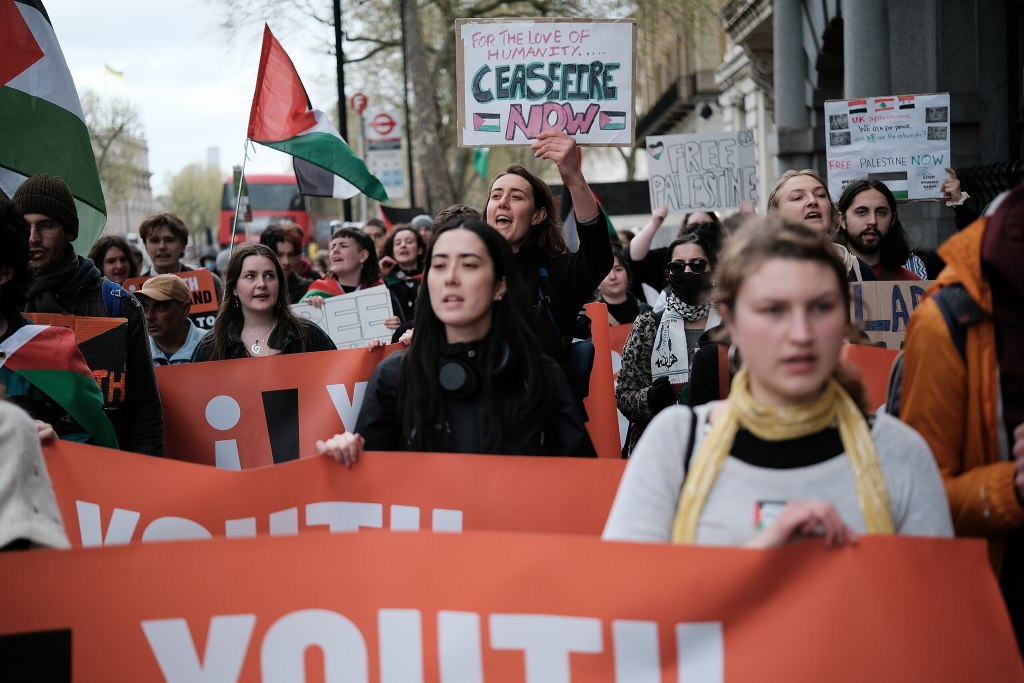In the news
Over 100 people have been arrested across the UK in the wake of the Government’s proscription of the direct-action group Palestine Action as a terrorist organisation, via its amendment of the Terrorism Act 2000 earlier this month. The arrests, which mostly took place this weekend in Bristol, Edinburgh, London, Manchester and Truro at demonstrations co-ordinated by Defend Our Juries, saw protestors who had called for a reversal of the ban on Palestine Action charged with the offence of supporting a terrorist organisation. At a separate event in Canterbury, another pro-Palestine demonstrator was filmed being threatened with arrest under the Terrorism Act by armed police, without having expressed any support for the proscribed group. Amnesty International have called the footage “very concerning… We have long criticised UK terrorism law for being excessively broad and vaguely worded and a threat to freedom of expression. This video documents one aspect of exactly the kind of thing we were warning about.” The following Monday, Palestine Action’s co-founder Huda Ammori renewed her legal challenge against the ban at the High Court. The group’s acts of terror include spray-painting aircraft and blockading traffic.
On the international level, a coalition of twelve states meeting at Bogotá under the banner of the Hague Group have agreed to “six coordinated diplomatic, legal and economic measures to restrain Israel’s assault on the Occupied Palestinian Territories and defend international law at large.” Delegates from Bolivia, Colombia, Cuba, Indonesia, Iraq, Libya, Malaysia, Namibia, Nicaragua, Oman, Saint Vincent and the Grenadines, and South Africa issued their Joint Statement on 16 July. The Statement resolves to “adopt[…]” into “domestic legal and legislative frameworks” a six-point programme to: (1-3) prevent the provision of arms and military equipment to Israel; (4) review all public contracts relating to the Palestinian occupation; (5) “comply with obligations to ensure accountability for the most serious crimes under international law”; and (6) “support universal jurisdiction mandates… to ensure justice for victims of international crimes committed in the Occupied Palestinian Territory.” Representatives of 18 further states – including China, Ireland, Spain and Türkiye – also attended the Bogotá meeting, and have now been invited to join the Statement. The Hague Group was founded in January to take “coordinated legal and diplomatic measures” to uphold international law concerning Palestine, particularly in response to recent developments at the International Court of Justice and International Criminal Court (ICC). UN Special Rapporteur Francesca Albanese – recently placed under US sanctions for her support for the ICC – called the meeting “a momentous step forward.”
In the courts
The High Court has held no longer “tenable” a super-injunction contra mundum, blocking disclosure of the fact that a highly sensitive dataset of Afghans working for the UK had been leaked in error by the Government in 2022, “particularly so given the serious interference it involves with the rights of the media defendants to freedom of expression and the correlative right of the public to receive the information they wish to impart.” In Ministry of Defence v Global Media and Entertainment Ltd & Ors [2025] EWHC 1806 (Admin), Mr Justice Chamberlain recognised that “appalling human rights abuses occur” in Taliban-controlled Afghanistan, and that this was highly relevant to those affected by the leak. However, the conclusions of a review report received this June, “that acquisition of the dataset by the Taliban is unlikely to substantially change an individual’s existing exposure, given the volume of data already available”, meant there were no longer reasonable grounds to challenge the discharge of the super-injunction, not least in light of considerations of “freedom of expression” and “the ordinary mechanisms of public accountability which operate in a democracy.” The data breach occurred in February 2022, leading to the publication of the names and contact details of almost 20,000 Afghans who had worked for the Ministry of Defence prior to Afghanistan’s return to Taliban rule in 2021. Since the publication of the High Court judgment last Tuesday, the leak and subsequent super-injunction have made international news.
Last week also saw a judicial review of the Leasehold and Freehold Reform Act 2024 brought to the High Court by a group of major freehold landowners. The claimants have sought to challenge the Act as disproportionately interfering with their right to enjoy private property under Protocol 1 Article 1 of the European Convention of Human Rights, arguing in part that the advantages the Act gives to leaseholders (principally through simplified lease extensions) will cause freehold landlords losses to the value of hundreds of millions of pounds. The hearings have been partially live-blogged by the Leasehold Knowledge Partnership charity. The High Court decision (Holgate LJ and Foxton J) is expected in the coming weeks.
The post The Weekly Round Up: Palestine Action, the Hague Group, a discharged MoD super-injunction, and freeholders’ Convention rights appeared first on UK Human Rights Blog.




